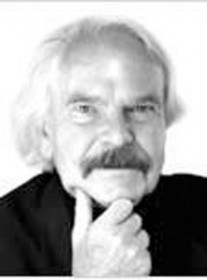By Bernd Debusmann
“It’s like the American dream in reverse.” That’s how President Barack Obama, ten days after taking office last year, described the plight of Americans hit by the faltering economy. His catchy description fell short — the dream has turned into a nightmare for tens of millions.

So much so that an opinion poll this week showed that 43 per cent of those surveyed thought that “the American Dream” is a thing of the past. It “once held true” but no longer does. Only half the country believes the dream “still exists,” according to the poll, commissioned by ABC News and Yahoo against a background of dismal statistics on growing poverty, inequality, unemployment, and Americans without health insurance.
Before turning to the gloomy numbers, a brief detour to the meaning of the phrase “the American Dream,” long a familiar part of the US (and international) lexicon. The survey defined it as “if you work hard, you get ahead.” That’s neat shorthand for the concept that the American social, economic and political system makes success possible for everyone.
More expansive definitions of the American Dream invariably feature home ownership, and there the dream went into reverse on a particularly large scale, with the subprime mortgage boom and subsequent housing bust. Last year alone, there were 2.8 million foreclosures — 7,700 a day — on homes whose owners could no longer afford their mortgages.
The statistic that best explains growing doubts over the achievability of the American Dream was released by the Census Bureau in mid-September. In 2009, the Bureau said, 3.8 million people joined the ranks of the poor by falling below the poverty line, defined by the government as an annual income of below $22,000 for a family of four.
In contrast, the net worth of the 400 richest Americans rose by a healthy eight per cent in the year to August, according to a list by the business magazine Forbes published a week after the poverty figures. That perpetuated a rich-poor gap of proportions similar to the 1920s, before the Great Depression. For most of the past four decades, the annual incomes of the bottom 90 percent have changed relatively little while those of the top 1 per cent have tripled.
In terms of equitable distribution of income and wealth, the US is closer to Iran, Argentina or Mexico than to Canada or Germany. (That is according to the Gini index, a complex statistical measure of inequality named after Corrado Gini, the Italian economist who devised it in 1912.)
Third World America
In this context, unflattering comparisons are inevitable. Arianna Huffington, co-founder of the left-leaning website The Huffington Post, just published a book entitled Third World America. “It’s a jarring phrase, I know,” she says, “but if we don’t change course — and quickly — that could very well be our future.”
As things stand, she writes on her website, “the fix is in. The game is rigged. The dice are loaded. And it starts in Washington, where special interests run the show — and where lobbyists outnumber elected officials 26 to 1. Unfortunately, there are no lobbyists for the American Dream.”
The new census figures translate into the highest poverty rate since 1994, or one out of seven (43.6 million) ranked as poor. The annual census report covers both poverty and health insurance and on the latter, too, the figure provided reason to doubt the American dream. More than 4.4 million lost health insurance, usually along with their jobs, and the army of uninsured now numbers more than 50 million.
It would have been even worse, Obama said, without additional unemployment payments and other programmes providing tax relief and income support.
The data showed that the Great Recession hit people at the lowest income levels the hardest and even for those who kept their jobs, the statistics were bleak: earnings of working men fell by 4.1 per cent and of working women by 2.8 per cent. The minimum wage in the US stands at $7.25 an hour, less than it was (adjusted for inflation) half a century ago.
For those on the lower ranks of the economic ladder it came as cold comfort that, technically, the recession ended more than a year ago. This is according to the National Bureau of Economic Research, which said in September that the recession began in December 2007, under the administration of President George W, Bush, and ended in June 2009, the longest downturn since World War II. The bureau measures a combination of macroeconomic indicators but not how people are affected personally.
Reaction to the poverty numbers has been relatively “muted” among the people’s representatives in Congress, as a perceptive article in the Washington Post noted. An explanation came from Deborah Weinstein, who heads the advocacy group Coalition on Human Needs and calls the increase in poverty a national emergency.
The problem of the poor is that they are not a powerful constituency. They don’t vote in great numbers and they don’t make contributions to re-election campaigns. Unlike the top 1 per cent. (Bernd Debusmann is a Reuters columnist. The opinions expressed are his own) (You can contact the author at Debusmann@Reuters.com)





